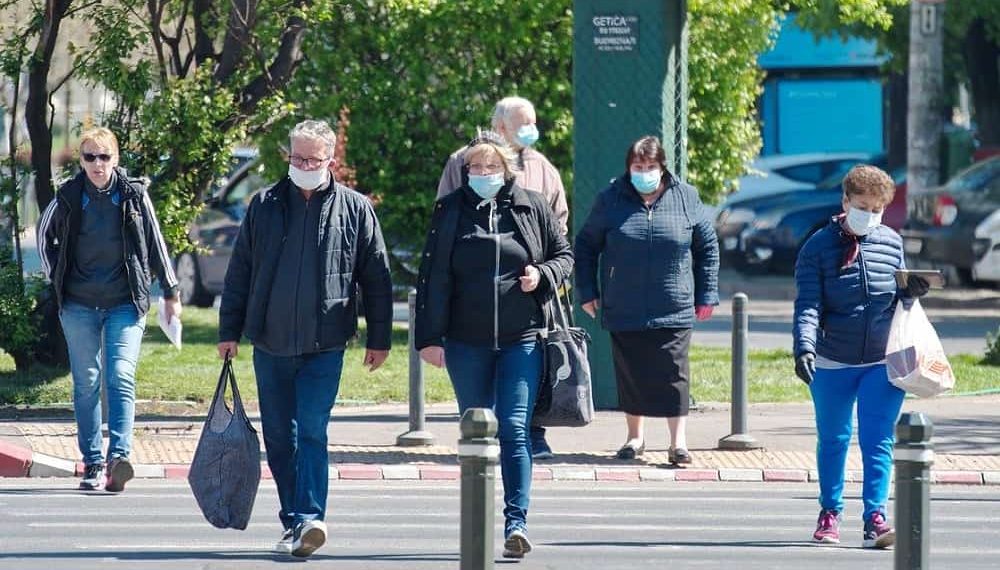COVID-19 can be avoided just by following rules: keep your distance, wear your mask, wash your hands, get vaccinated, and watch out for symptoms. Even the simplest of actions have the greatest effects on your health and others. As the saying goes, prevention is better than cure.
Practice Social Distancing
COVID-19 is spread through close contact within 6 feet of infected persons. It is transmissible by respiratory droplets. When a person openly coughs or sneezes, the droplets from the expulsion can linger in the air for an indefinite time. It is also hard to tell who is infected with COVID-19 because some cases may not show any symptoms.
One of the guidelines strictly set was to stay at home, in order to prevent any possible means of spreading the disease to you or others. In instances when one must go out for essential matters, they must never forget to keep to themselves and avoid crowds. Plan before going out: know your route well and keep it quick.
Gatherings should be avoided, even when every attendee is going to wear a mask. Instead, opt to conduct meetings online. There are numerous platforms available for online gatherings, and it may even cut back on costs for petrol or transport money.
Avoid public transportation if possible. Use a personal vehicle like a car or a bicycle to get to your destination. When doing errands, keep your trips to essentials only. If possible, choose delivery services or just for curbside pick-ups and drive-through. When going for a jog or a bike ride, remember to keep 6 feet of distance from whomever you meet.
Wear a Face Mask and Wash Your Hands
Wearing a face mask will decrease the spread of disease and a face mask manufacturer can help you to order items in bulk. It acts to trap the droplets coming from your nose and your mouth from going into the air or dripping onto surfaces. It not only helps you from inhaling any lingering aerosols in the air but also helps others from catching whatever you might have.
Practice wearing face masks correctly: It should cover from your nose to your chin. If it is a medical face mask, push the wire on the top part of the mask to follow the shape of your nose. Do not put the mask down your chin to your neck. Refrain from touching it once it is on. If touching it is needed, wash your hands after.
Surfaces may be bacteria-ridden, and the virus may exist on unclean surfaces. Wash your hands with hand soap and water immediately after touching anything. The correct way to wash hands is to lather them with soap after wetting them and scrubbing your hands for 20 seconds or singing a whole “Happy Birthday” song twice. Rinse them well and dry them with a clean towel or air dry.
When soap and water are not available to you, and you’re outside, bring a bottle of alcohol-based hand sanitiser. It should at least contain 60% alcohol. However, they do not get rid of most types of germs nor do remove much dirt or grease. It is not an alternative to hand washing in this aspect.
Get Vaccinated
The vaccines have begun rolling out ever since early December 2020. The Centers for Disease Control and Prevention (CDC) strongly advise getting vaccinated. All three authorised and recommended vaccines are safe, effective, and greatly reduce the risk of severe cases. There is no preferred brand, so get the vaccine that is available to you.
Getting the vaccine will not make you immune from sickness, as no vaccine is 100% effective. It will significantly reduce the possibility of you getting severely sick from COVID-19. To get fully vaccinated, you must complete the needed doses from the brand of vaccine you took. Remember to follow the interval indicated for the brand of vaccine taken.
Even when you are fully vaccinated, you must still follow the guidelines set. Keep wearing your mask and keeping 6 feet of social distance. Always wash your hands after touching your face mask or touching surfaces.
Always Watch Your Symptoms
People with COVID-19 may present as symptomatic or asymptomatic.
Asymptomatic people do not present any apparent signs of infection: fever, coughing, or shortness of breath. They appear to be healthy, but the virus is actually inside them already and is considered contagious. These cases are called the “silent spreaders”, as tracking the spread of the disease is difficult.
Symptomatic cases are easier to tell as they physically appear unwell. They begin to appear 5-6 days from exposure and can last 1-14 days.
The tell-tale symptoms of COVID-19 are fever, cough, breathing difficulty, body aches, loss of taste and smell, and many more. When you present with any of these symptoms, call your health care provider and get tested. Monitor your health regularly. If living with family, isolate yourself.
Watch out for adults or the elderly with underlying medical conditions like cancer, lung diseases, heart problems, and more. They have a higher risk of getting severe cases of COVID-19 as they are already immunocompromised. They may need to be sent to a hospital as soon as possible when showing symptoms.
Conclusion
By following all these ways on how to protect yourself from COVID-19, not only do you prevent yourself from getting the disease, but also to the people around you. This disease needs everyone’s effort and participation to stop it. Doing all these small steps will help fight this pandemic until the pandemic is over.



















